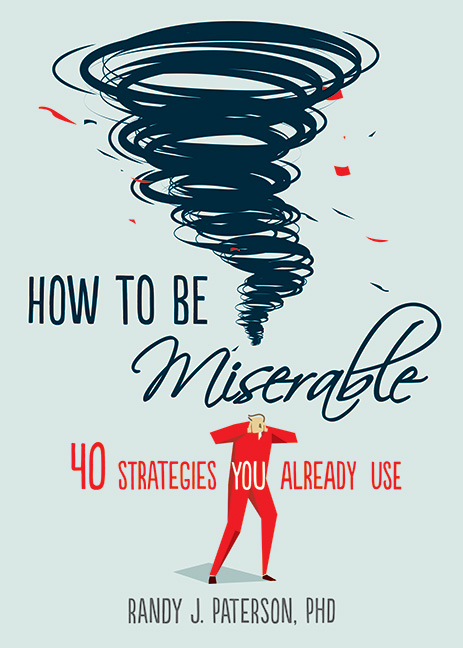Clients often come to therapy with significant difficulties that take significant dedication and effort to overcome. Yet they are often accustomed to standard medical care, in which the clinician does almost all the work and produces remarkable results with a minimal patient role (e.g., splinting an agonizing broken wrist; or prescribing antibiotics for a raging case of strep throat).
If only we were so powerful. Regrettably, we are not. For psychotherapy to work, clients usually need to make it a real priority in their lives. Their role will be primary; ours will largely be that of supporter/coach.
For this reason, the past several decades have seen an emphasis on strategies to assess client motivation and enhance commitment. To these established techniques, I have recently been appending (with many clients) a simple question at the conclusion of our intake process. The wording and metaphors may change depending on the client, but the basic idea remains the same.
“John, thank you for helping me understand what you’ve been going through. As you think about this issue, would you say that it’s more of a ‘dragon’ in your life, or more of a mosquito?”
Invariably the client will describe it as a dragon. After all, they were distressed enough to make an appointment with a therapist to address it.
“That’s a shame, isn’t it? If it was a mosquito, you could just brush it off your arm, almost without thinking.
“But if it’s a dragon, that’s another matter. You’d want to pay closer attention to it, and marshal all of your resources against it. It would have to be a real priority in your life.
“I think you’re right. This is a dragon – a defeatable one, but undeniably a dragon. Just coming to chat with me now and then isn’t going to do. If you and I are going to make progress against it, we need to take it seriously. And that will mean work that continues outside this office. Because that dragon doesn’t live here.”
This metaphor does not replace the intricacies of motivational interviewing or other strategies, but it does concretize the issue in a manner that puts clients in the active role, elevating them from passive recipient to courageous knight, and emphasizes the need for work outside the session.
It also demotes the therapist from agent of change to helpful page or squire, an individual charged with supplying the tools for the one doing the real work – which in our case is always the client.
 Randy Paterson, PhD, is director of Changeways Clinic, a private psychology practice in Vancouver, BC, Canada. He is author of How to Be Miserable: 40 Strategies You Already Use.
Randy Paterson, PhD, is director of Changeways Clinic, a private psychology practice in Vancouver, BC, Canada. He is author of How to Be Miserable: 40 Strategies You Already Use.



 2024 Peace Playbook: 3 Tactics to Avoid Clashes with Your Partner
2024 Peace Playbook: 3 Tactics to Avoid Clashes with Your Partner